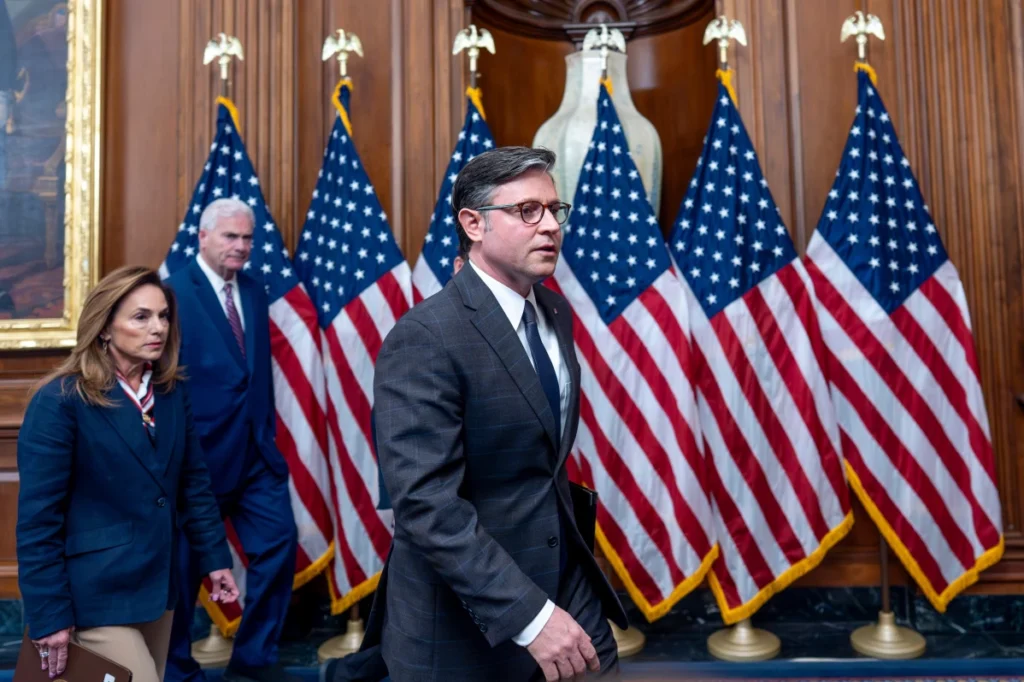The longest government shutdown in modern U.S. history has entered its fourth week — and now the debate over America’s health care future is taking center stage. What began as a fiscal standoff has evolved into a fierce political showdown over the fate of Affordable Care Act subsidies, with millions of Americans caught in the crossfire.
A Nation Stuck Between Policy and Politics
While federal offices remain dark and national parks closed, it’s the potential impact on health insurance that’s rattling families the most. The enhanced premium subsidies — first expanded during the pandemic to make Affordable Care Act (ACA) coverage more affordable — are set to expire at the end of the year.
If Congress fails to extend them, premiums for middle-class families could skyrocket in 2026. For many, that means a choice between paying rent or keeping their health insurance.
Republicans insist that Democrats must vote to reopen the government before any talks on extending the subsidies can move forward. Democrats counter that health care assistance for millions shouldn’t be used as a bargaining chip.
Growing Public Frustration
Across the country, lawmakers are facing heated questions from voters. At a recent telephone town hall, Maryland Rep. Andy Harris — a leading member of the conservative Freedom Caucus — was pressed by a caller asking what Republicans plan to do about rising health premiums. His answer was hesitant: “We think the solution is to do something to bring premiums down,” he said vaguely, without offering details.
That uncertainty mirrors a broader Republican dilemma that’s lingered for over a decade: how to replace the ACA without triggering another health care crisis. The party remains unified in opposing “Obamacare” but divided on what comes next.
Meanwhile, letters notifying consumers of higher 2026 premiums are already arriving. For some families, the estimated increase could top 70 percent if federal tax credits vanish.
The White House Message: “Reopen First, Talk Later”
President Donald Trump and Speaker Mike Johnson have repeatedly said they’re open to considering a short-term extension — but only after Democrats agree to end the shutdown. The president has called Obamacare “a disaster” and insists that a new, “better” plan is coming soon, though he hasn’t released specifics.
Administration officials, including CMS Administrator Dr. Mehmet Oz, have said a long-term alternative is being developed. But nearly ten months into Trump’s return to office, no concrete proposal has surfaced.
What’s at Stake for Millions
More than 24 million Americans are currently enrolled in ACA marketplace plans — more than double the number before the pandemic. The temporary subsidies introduced in 2021 dramatically expanded access, especially in rural and working-class communities. Without them, analysts estimate around four million people could lose coverage by 2035.
Small-business owners, gig workers, and self-employed Americans are among those most exposed. “If premiums go up 75 percent, most people are just going to go without health insurance,” one Michigan resident told her congressman at a recent town hall.
Doctors and hospital systems are also worried. Without subsidies, more uninsured patients will likely turn to emergency rooms for care, driving up costs for everyone else.
Divisions Inside the GOP
While conservative think tanks are urging Republicans to let the subsidies expire, some moderate lawmakers are sounding alarms. A group of thirteen House Republicans from swing districts recently sent a letter to Speaker Johnson warning that the party must “immediately turn our focus to the growing crisis of health care affordability.”
They argue that ignoring voters’ concerns could be politically disastrous heading into the 2026 midterms — echoing the 2018 backlash that cost Republicans control of the House after an unsuccessful Obamacare repeal push.
Still, many conservatives see the subsidies as a symbol of wasteful pandemic-era spending. “We have a massive spending problem,” said David McIntosh of the Club for Growth. “People had a great deal during COVID. Now it’s time to get back to normal and pay what health care really costs.”
The Economic and Human Cost
Beyond the politics, the numbers are sobering. Analysts warn that letting the subsidies lapse could raise the federal deficit by roughly $350 billion over the next decade — but would also leave millions without coverage. Health care economists note that when people lose insurance, preventive care declines, chronic diseases worsen, and overall costs rise long-term.
In other words, the short-term budget savings could create long-term fiscal pain.
At community health centers, administrators are already seeing anxiety among patients. “People are scared,” said one clinic director in Pennsylvania. “They finally got coverage after years without it. Now they’re wondering if it all disappears in January.”
A Political Gamble with Real Lives Attached
For now, both parties seem entrenched. Democrats view the subsidies as essential to maintaining affordable coverage for working families. Republicans argue that extending them without structural reform is irresponsible.
But with the ACA open-enrollment period beginning November 1, the clock is ticking. Every day the shutdown continues, pressure mounts on both sides to deliver clarity.
If a deal doesn’t emerge soon, millions could see premium spikes before Christmas — a holiday surprise no family can afford.
The Bottom Line
This shutdown isn’t just about politics or spending caps; it’s about what kind of health care system Americans want. The ACA, for all its flaws, has become woven into the country’s social fabric. Undoing parts of it without a replacement plan could have consequences far beyond Washington.
For now, Americans wait — for their government to reopen, for their leaders to compromise, and for a health care promise that still feels uncertain fifteen years after “Obamacare” became law.

